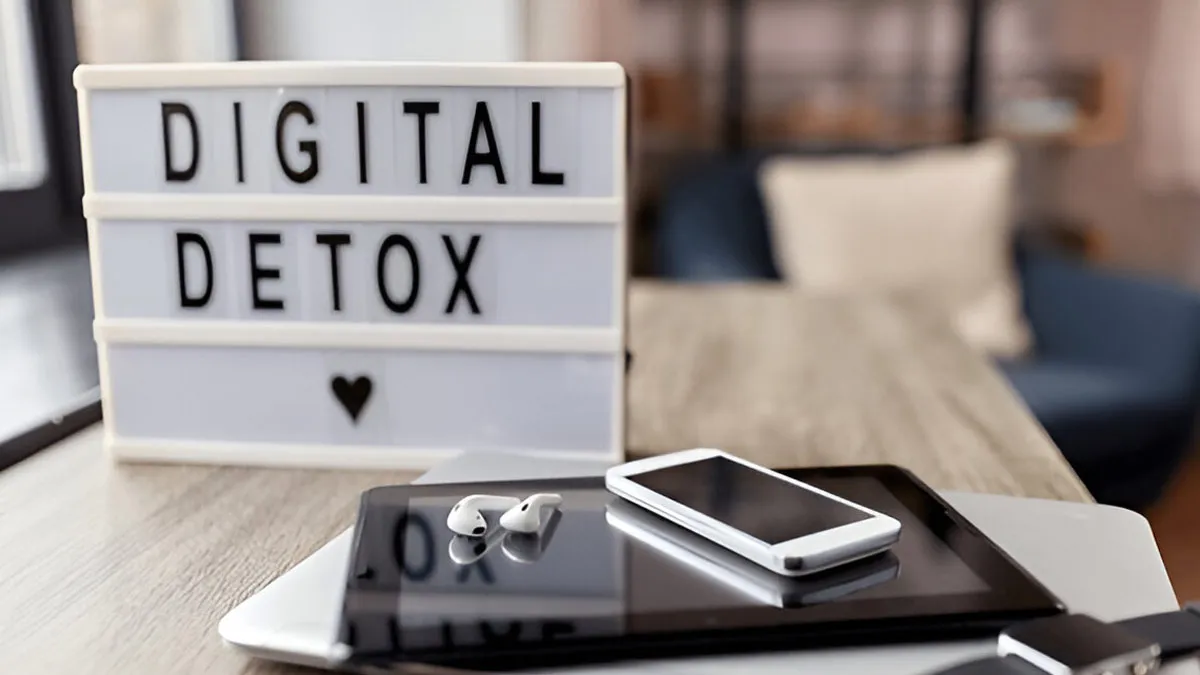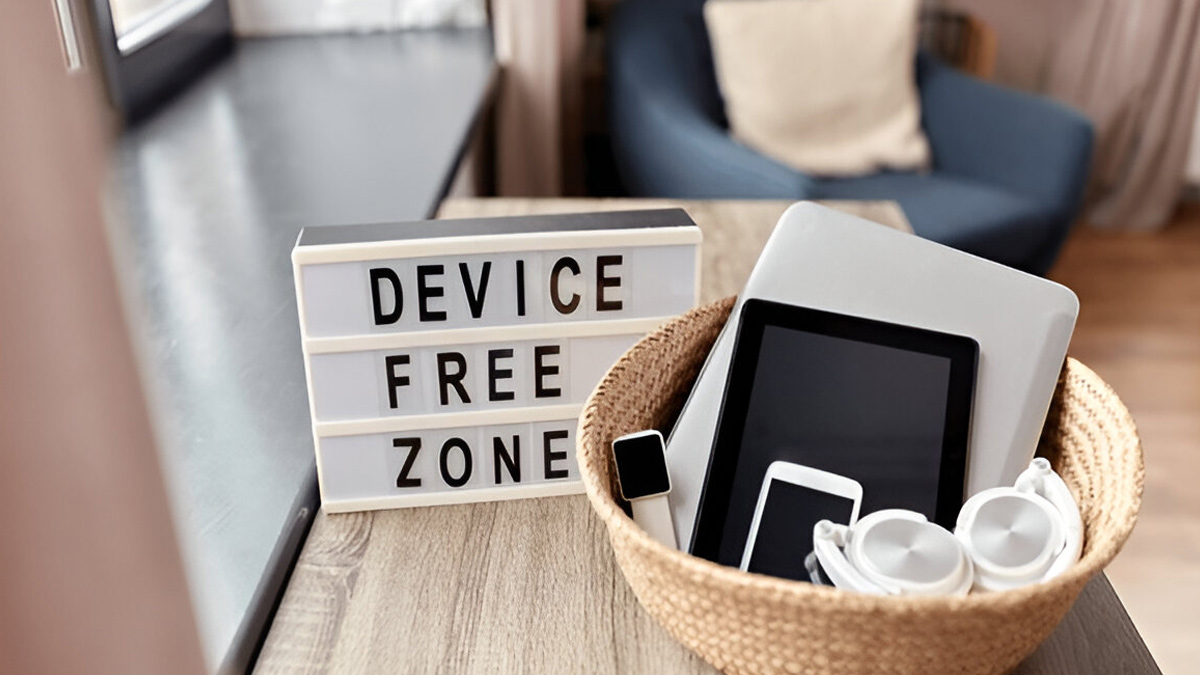
Think about the last time you spent an entire hour without looking at your phone, laptop, or TV screen. Hard to recall, isn’t it? In today’s world, our lives revolve around constant pings, notifications, and endless scrolling. We’re connected 24/7, yet somehow more drained, distracted, and anxious than ever. That’s where digital fasting comes in. Much like giving your body a break through food fasting, this practice is about unplugging from technology to reset your brain, recharge your focus, and reclaim your peace of mind.
Table of Content:-
CHECK YOUR
MENTAL HEALTH

What is Digital Fasting?

Digital fasting is the conscious act of disconnecting from digital technology, phones, social media, laptop computers, game systems, or even the television, for a set period of time. It does not mean cutting out technology altogether, but creating intentional spaces where your mind is not filled with digital distractions. The objective is to cut down on overstimulation, provide your brain room to breathe, and develop a healthier relationship with technology.
Why your brain needs it now more than ever
Our brains weren’t designed to process the flood of information that screens throw at us. According to a 2019 study, increased use of screens among adults may harm learning, memory, and mental health, as well as the potential to increase the risk of early neurodegeneration. The study shows that in adults aged 18 – 25, excessive screen time causes thinning of the cerebral cortex, the brain’s outermost layer responsible for processing memory and cognitive functions, such as decision-making and problem-solving.
When you take a digital fast, you lower mental exhaustion, enhance emotional stability, and give your brain a rebooting chance, just like sleep replenishes energy.
Also Read: Digital Detoxing and Balancing Life: Doctor Tells How
Benefits of Digital Fasting

- Sharper focus: Without the constant ping of notifications, your attention span gets a chance to lengthen. Tasks that previously appeared impossible to complete now feel more achievable.
- Better sleep: Blue light from screens interferes with melatonin production, getting higher the later it gets. A digital detox before bed can enhance the quality of sleep.
- Reduced anxiety: Social media promotes comparison and worry. A day off from the grid can leave you with a sense of calm.
- More creativity: Quiet time away from screens sparks fresh ideas, something our overstimulated brains desperately need.
- Stronger real-life connections: Rather than scrolling through your phone during dinner, you have more engaging conversations and present interactions.
Also Read: Brain Health Is The New Fitness: Habits That Protect Your Mind For The Long-Term
How to Practice Digital Fasting
- Begin small: Start by keeping screens away for a few hours in the evening. Gradually work up to a full day on a weekly basis.
- Set boundaries: Choose no-screen spaces, such as the bedroom or dining table to help you out.
- Replace, don’t remove: Instead of scrolling, use what you enjoy, like reading, journaling, cooking, or even a thoughtful walk.
- Use tech wisely: If you can’t avoid devices for work, focus on personal screen time reduction instead.
Weekend Detox Challenge
A great method for attempting digital fasting is the weekend detox. Picture that: 24–48 hours of not opening emails or social media. It may seem hard at first, but the impact is powerful, you'll discover less anxiety, more energy, and even better focus when you return online.
Bottomline
We detox our bodies on diets, our homes on clutter cleaning, why not offer our brains the same reboot? Digital fasting is not a trend; it's a practice much needed in a hyper-connected, loud world. Begin with little, be consistent, and see how this mindful detox rejuvenates not only your brain but your entire well-being.
Also watch this video
How we keep this article up to date:
We work with experts and keep a close eye on the latest in health and wellness. Whenever there is a new research or helpful information, we update our articles with accurate and useful advice.
Current Version